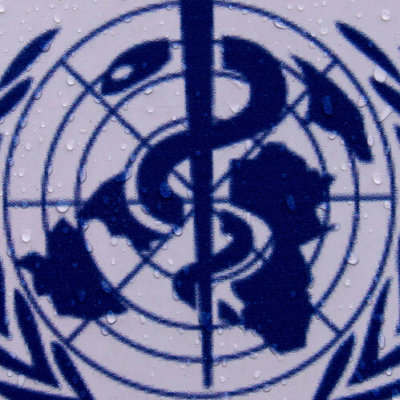What is the ICD-10? And How Does it Relate to Mental Health Issues?

By: Mark Morgan
by Andrea M. Darcy
ICD stands for the International Statistical Classification of Diseases and Related Health Problems, or “International Classification of Diseases” for short.
A comprehensive manual and diagnostic tool created, published and managed by the World Health Organisation (WHO), the ICD sets the international standard for healthcare diagnosis.
As for the WHO, it is a specialised agency of the United Nations which monitors and supports public health in around 180 countries.
In the United Kingdom the ICD-10 (the latest edition) is the main reference guide to conditions for mental health practitioners and is a NHS standard. It is referred to alongside recommendations by the National Institute for Health and Care Excellence (NICE).
British psychotherapists and psychiatrists may also refer to the Diagnostic and Statistical Manual of Mental Disorders (DSM) for guidance. The DSM is, however, an American manual, and not the officially recommended reference in the UK.
What does the ICD-10 contain?
Inside the ICD-10 you will find the following:
Diagnostic codes for classifying mental health conditions.
Up to six digits long, these codes are references for mental health practitioners. It means they can communicate more quickly when working to help the same client or filing reports, such as insurance claims.
Detailed systems of classification for each broader condition.
An example of this would be depressive episodes. These are divided into mild, moderate, and severe depressive episodes. Mild and moderate depressive episodes are then further divided into with and without somatic syndromes. Severe depressive episodes are divided into with and without psychotic symptoms.
Signs and symptoms for each mental health condition.
These help your health care practitioner correctly diagnose your issue. If you are the sort who requires detailed information to feel comfortable about things, you might find it useful to refer to the ICD yourself to understand why you are given a certain diagnosis.
Related information for each diagnosis.
The ICD shows what other conditions each mental health diagnosis is connected to, how it differs, any reported abnormal findings, and any related social circumstances.
A brief history of the ICD
Attempts to classify diseases and form statistics around them began as early as the 1600s, but it wasn’t until the latter half of the 1800s that a medical classification system stuck.
“The Bertillon Classification of Causes of Death” was created by Frenchman Jacques Bertillon, then Chief of Statistical Services of the City of Paris. In 1900 an international conference around the system was held in France with attendees from 26 countries. The classification system began to be referred to as the “International List of Causes of Death”, and an agreement was made to update the system every ten years.
After Bertillon’s death in 1922 the Health Organisation of the League of Nations (Predecessor to WHO) took an active interest in the list, and with time they took over the monitoring and updating of the list.
The current edition of the ICD, the ICD-10, has been in use since 1992 (with several revisions). You can access much of the ICD online, including ICD-10 training. The next edition, the ICD-11, is set to be released by WHO in 2018. It will be easier to read and be available in a very comprehensive digital format.
(You can read the complete ICD-10 section on mental health issues here.)
What does the ICD offer healthcare practitioners and you?
The ICD works as a classification system so that your psychotherapist, psychiatrist or mental health nurse can correctly diagnose your symptoms and provide the best available treatment.
So it means you get a diagnosis that is based on thorough, highly regulated, updated, and researched information.
Again, it can also help you understand what your issue is. If you feel better with the complete picture, the ICD is a reference guide you can access to learn how your condition works, what other conditions it is related to, and what the recommended treatment is.
But Can I Trust a Mental Health Diagnosis Based on the ICD ?

By: Icare Girard
As far as mental health diagnosis go, the ICD-10 is a very good source of information that looks at conditions from a global perspective, and is a trusted source in many countries. It’s the most widely used classification system for health conditions, and there is argument that it is a better reference than the popular DSM-V.
Just how carefully crafted and regulated is the ICD-10? The current version, ICD-10, was started in 1983 and only finalised and released in 1992 – nine years later. In other words, the ICD-10 is the source of constant research and discussion to ensure it is as useful as possible for healthcare worldwide.
DSM vs ICD
The DSM is focussed around American research. The DSM has also proven to be far more controversial historically.
And yet both the ICD and DSM are useful, with many practitioners referring to both to make the most informed decisions possible. It could be said that in general, the ICD is more used for making a diagnosis, while the DSM is referred to for the research it presents. And this is true even in America, where the DSM has lost it’s hold. Since 2015 it is ICD codes that insurance and group health plans demand.
In any case, the two organisations have long sought to work together. The codes of each manual already match, for the most part. The next edition of the ICD to be released in 2018 will focus on further aligning mental health classifications and codes with the DSM.
But why should I accept a mental health label at all, even if it is from the ICD?
It’s true that mental health conditions are not diseases that can be seen under a microscope. They are labels designed to understand people who think and behave in ways outside the perceived ‘norm’. And as person, you are more than a label. It doesn’t help that there sadly still stigmas around mental health.
On the other hand, mental health diagnosis can be very helpful to your understanding of what you are experiencing that marks you out as different to others, and might be making your life complicated. It can feel a relief to at last know what the problem is, have a clear treatment plan, and to know that there are others who experience similar issues and can understand. If you have a personality disorder, you might find our article on the pros and cons of a personality disorder diagnosis useful).
Do you feel that you or a loved one might need a mental health diagnosis? Harley Therapy connects you with some of London’s best psychotherapists, counselling psychologists, and psychiatrists.
Have a question about the ICD, or want to share your knowledge? use the comment box below.






The DSM was made up by men. Not too sure how much research went into it. I hear there is no such thing as mental illness and the disorders or whatever we call them are just screwed up people. I am sure I could go to five different doctors and get five different diagnoses. I was told I am bipolar mixed and have BPD. I have seen a therapist mainly for the BPD for several years. Last year he dropped a bombshell. He didn’t think I have BPD. Go figure. If I believe in diagnoses anymore, I say I am BPD. Whatever. It does leave one rather confused. You start to believe in a system meant to help you, you take meds that almost kill you and yes that really happened and you don’t get better. You lose hope and you feel like you are floating, untethered to anything. You’re just lost and miserable and don’t want to live. There is so much more to my story, financial and emotional abuse by a family member, the death of my husband after 40 years of marriage. I just know that when I started reading that there is no such thing as mental illness I thought – well, where does that leave those of us who are suffering? I haven’t found any answers.
Labels are hard, and mental illnesses are not ‘illnesses’. They are not viruses that can be seen under a microscope. They are terms to describe people who don’t fit under society’s present ‘norms’. We truly wish there was a different way to speak about it all, one that was less stigmatising. Some people of course find the label useful, as they want that level of feeling they can understand their challenges, or to then be able to more easily find others who see the world as they do. But we do feel that if labels help, great, but if not, it’s perfectly fine not to see yourself through your diagnosis, but as an individual with your own unique challenges. There are many therapists out there who support this perspective. What is important, after all, is to seek the support you need, not to get hung up on what label you do or don’t fit under.
Thank you for responding. I understand that it is best not to get hung up on labels. I agree. I deal with depression and suicidal thoughts every day. I don’t even think about the bipolar and BPD anymore. I don’t believe there is much hope for me. I am alone and while I am an introvert I am incredibly lonely. I can’t seem to get past what has happened to me. It is what it is. I have been ill with fibromyalgia for 22 years. So the depression works against the fibro and vice versa. Chronic pain really takes its toll and I am tired.
Hello I would like to leave a brief comment after just being officially diagnosed with adult adhd ICD10 F9.0 at 50 yrs old.I have a hell of a lot to say but after months of research now I have a title for my years and years of issues madness the list is endless so basically I have applied for pip using all my codes criteria letters everything and it seems I could have been helped years ago had I known and after a lot of research this high score may be enough for a successful claim along with my pack of letters etc.Does anyone know if I can get an past backdated award for my suffering?
Hi Tracey, we don’t know, it’s not our area of expertise, but we’ll post the comment and maybe if other readers see it they’ll have feedback.
Hi well further from my previous comment I have been awarded high rate pip for severe adult ADHD ICD10 F9.0 which in itself I’m very pleased and proud because it took me a year of researching learning along with an ongoing care plan.I must add that it is not easy at all but possible to get professional help financially and otherwise if you have the correct criteria codes guidelines along with the many issues again endless to be successful. I’m grateful that I had the criteria and knowledge to be recognised supported and to help others in my position in various ways thankfully alongside the various impairment issues etc I am good at some things which has been proved so I can only hope my future will be a lot happier where I can feel I can live and not exist.
Really glad to hear you got out there and are getting the support you need! “I am good at some things”… we are glad that you wrote that, it’s such a huge step to be able to recognise the resources we actually already have. We wish you well in the journey.
Hi Tracet
I was given the same diagnosis as you that was 2018 at age 55, Since then i have successfully claimed full pip and have now been mysteriously moved to the ESA support group, a place where despite my many battled over the years I did not qualify for but I was exempt from doing any activities in the wrag now I have proof they were wrong and no i was not lying I feel they owe me, how did you get on? I wish you well what an eye-opener eh, x kind regards heather
Hi, Martha, I was diagnosed as ADHD at age 55 after years of being treated for depression, All of your ales are symptoms associated with ADHD. My diagnosis banished that feeling of STUPID I’d had all my life. I don’t have fibromyalgia but just googled it with ADHD.and well surprise surprise. check it out I wish you well 🙂 https://www.ajmc.com/newsroom/study-suggests-screening-patients-with-fibromyalgia-syndrome-for-adhd-